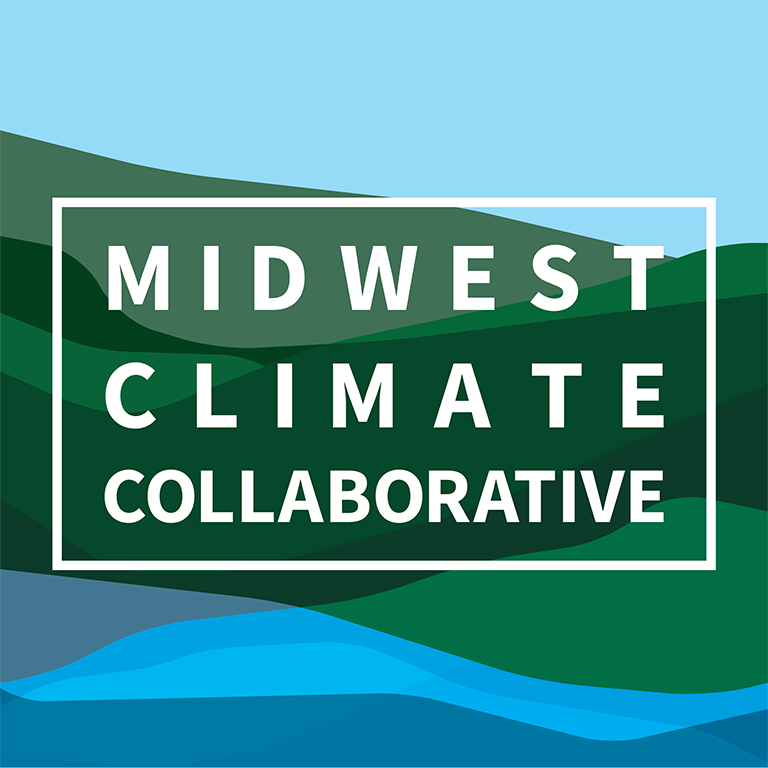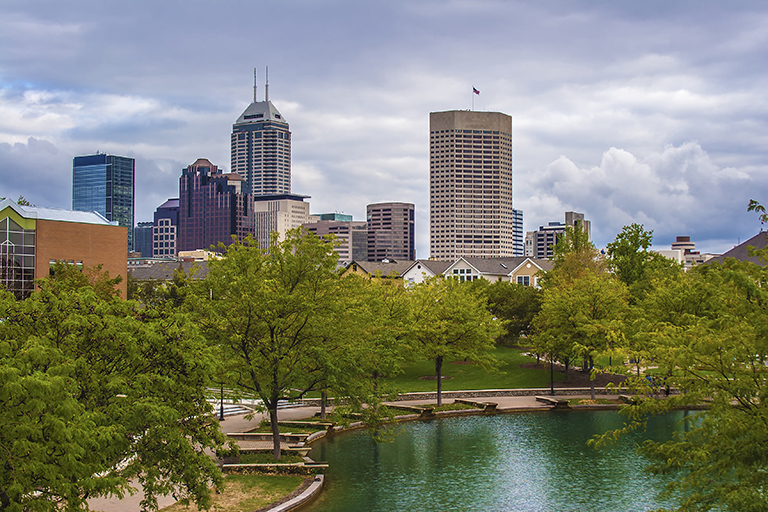Indiana University’s Environmental Resilience Institute (ERI) is a partner on a new National Science Foundation (NSF) Civic Innovation Challenge (CIVIC) grant to explore solutions to mitigate heat island effects in collaboration with Indianapolis and three other Midwestern communities.
The grant, led by the Midwest Climate Collaborative (MCC) of which ERI is a member, aims to design community-based solutions for equitable expansion of tree canopies by working with stakeholders and applying existing research and data.
“Trees are hugely beneficial for helping to clean the air, absorb excess water, and protect public health on hot days,” said ERI Executive Director Gabe Filippelli, a co-principal investigator on the project. “Many cities have inadequate or inequitably distributed tree canopies due to historical issues, insect loss, and poor tree maintenance. This project aims to bring together a wide range of partners—city government staff, nonprofit organizations, and researchers—to identify strategies to better support tree canopies and make a plan to implement those solutions.”
Additional partners on the project include the City of Indianapolis, the City of Kansas City, the City of Madison, Wisc., the City of St. Louis as well as the University of Missouri-Kansas City, the University of Wisconsin-Madison, and Washington University in St. Louis.
“Higher temperatures escalate public health concerns and disparities, increase energy burdens, and adversely affect local economies," said Heather Navarro, director of the MCC. "There are many ways communities can mitigate heat stress, including the expansion of an area’s tree canopy.”
For many communities, planting trees is a function of the local government with assistance from nearby non-governmental organizations. The grant will identify new funding to support long-term maintenance of trees as well as a Midwest Tree Canopy Hub to share data and methodologies for mitigating extreme heat with expanded tree canopy.
The NSF CIVIC grant flips the community-university dynamic, asking communities to identify civic priorities ripe for innovation and then to partner with researchers to address those priorities. The MCC’s grant responds to concerns heard from local governments and non-profits in the Indianapolis, Kansas City, Madison, and St. Louis regions about the challenges of maintaining trees in order to reap all the benefits they provide. Stakeholders from all four communities will be engaged in planning this fall and submit a Stage 2 proposal early next year for implementation.
For CIVIC 2022, 56 teams have been granted Stage 1 planning awards of $50,000 over 6 months. NSF, the US Department of Energy, and the US Department of Homeland Security will announce the Stage 2 teams in the Spring of 2023. Each Stage 2 awardee will receive up to $1 million to implement their envisioned pilot projects over a 1-year timeframe.
About the Environmental Resilience Institute
Indiana University’s Environmental Resilience Institute brings together a broad coalition of government, business, nonprofit, and community leaders to help Indiana and the Midwest better prepare for the challenges of environmental change. By integrating research, education, and community, ERI is working to create a more sustainable, equitable, and prosperous future. Learn more at eri.iu.edu.
About the Midwest Climate Collaborative
The Midwest Climate Collaborative is a multi-sector collaborative working towards a vision of a carbon neutral, climate resilient, interconnected Midwest region. For more information please visit https://midwestclimatecollaborative.wustl.edu/ or contact Navarro at hnavarro@wustl.edu.
About the Civic Innovation Challenge
The Civic Innovation Challenge (CIVIC) is a research and action competition that launched in April 2020 with funding from the National Science Foundation. NSF is joined by the U.S. Department of Energy, and the U.S. Department of Homeland Security for this next iteration of CIVIC. Teams of academic and civic partners competed for awards to support the rapid implementation of community-driven, research-based pilot projects that address mobility and resilience priorities.




